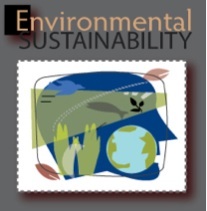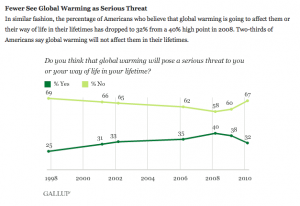 Over the last twelve months the phrases “environmental sustainability” and the “definition of sustainability” are in number 1 and 2 positions on the top Google searches for sustainability. What do searchers find and who influences their thinking? Most of our citizens are getting information on these terms from Wikipedia or the EPA or, in some cases, the more mainstream press such as MSNBC. Our site, EarthSayers.tv, is focused on being in the top results along with Wikipedia bringing the unfiltered voices of sustainability, a videopedia, if you will, calling out the people defining the emerging landscape of sustainability. We are not in the top rankings YET, but because we pay such close attention to search, we see a trend of major corporations moving into the top rankings as they come to understand how they can influence public perceptions of their “greenness” through paid and organic search strategies. Eventually the big Corporations will dominate the highest rankings.
Over the last twelve months the phrases “environmental sustainability” and the “definition of sustainability” are in number 1 and 2 positions on the top Google searches for sustainability. What do searchers find and who influences their thinking? Most of our citizens are getting information on these terms from Wikipedia or the EPA or, in some cases, the more mainstream press such as MSNBC. Our site, EarthSayers.tv, is focused on being in the top results along with Wikipedia bringing the unfiltered voices of sustainability, a videopedia, if you will, calling out the people defining the emerging landscape of sustainability. We are not in the top rankings YET, but because we pay such close attention to search, we see a trend of major corporations moving into the top rankings as they come to understand how they can influence public perceptions of their “greenness” through paid and organic search strategies. Eventually the big Corporations will dominate the highest rankings.
But getting the attention of progressives and their organizations on the importance of search and high rankings is difficult, largely because they lack any experience on the commercial side of the Web, resulting in much of the information and news produced around sustainability being buried in the back water of Google and Blinkx search results. A couple of years ago when we first started EarthSayers a search on Blinkx, a video search engine, netted 21,000 sustainability videos. Today it’s over 250,000!
So as the information chests GROW of the well meaning organizations and leaders, ranging from environmentalists to triple bottom line advocates, and the bloggers and twitterers, including our own @earthsayer, seed the Web organically, we aren’t really impacting the rankings on sustainability or on any of the related categories such as global warming and climate change. This is a failure contributing to the decline in awareness tracked in polls and surveys.
A recent Gallup poll cited in the Talk of the Town, The New Yorker, April 12, 2010, reports “forty-eight per cent of the respondents believe the threat of global warming to be generally exaggerated. This figure was up from thirty-five percent a year ago. According to the same poll, only fifty-two per cent of Americans believe that “most scientist believe that global warming is occurring – down from sixty-five per cent in 2008. The dark green line below represent the per cent of people (32%) who believe global warming is going to affect their lives, down from a high of 40 per cent.
 Elizabeth Kolbert in The New Yorker article also makes note of “a quarter of the TV weather-casters AGREE with the statement ‘global warming is a scam,’ and nearly two-thirds believe that, if warming is occurring, it is caused mostly by natural change.” This is painful to consider.
Elizabeth Kolbert in The New Yorker article also makes note of “a quarter of the TV weather-casters AGREE with the statement ‘global warming is a scam,’ and nearly two-thirds believe that, if warming is occurring, it is caused mostly by natural change.” This is painful to consider.
The Web as new media can play a critical role in educating our citizens about sustainability and the related issues, especially if we use it to bring to the fore with high page rankings the unfiltered voices of business and civic leaders, experts, consultants, and citizens from all walks of life. There is way too much processed information, particularly in the form of unsubstantiated marketing claims and green lists, and too little authentic voices of sustainability that can be found by searching the Web. Research shows that children rarely go beyond the first page of rankings and it is not a stretch to assume adults are not much different. We are working to fix the problem as soon as possible by educating leaders, aggregating sustainability videos, and using a sustainability taxonomy we created for our site to seed the Web methodically, but we can’t do it alone. We need help drawing attention to the problem that is, at the same time, a great opportunity to increase sustainability awareness and educate our citizens.
Note:
According to PEJ New Media Index “Global warming emerged as the second-largest story in the blogosphere (at 16%). It, too, has proven a favorite over the past year. Last week marked the 10th time that the subject has been among the top five stories on blogs since PEJ New Media Index began monitoring the blogosphere in January 2009.
